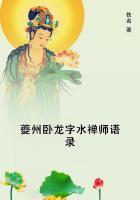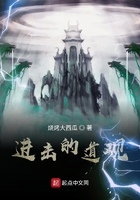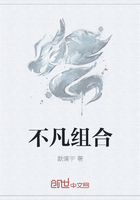While there are the types of mood and emotional make-up, there are curious monothymic types, people who habitually tend to react with one emotion or mood.
The fear type. It must again be emphasized that we cannot separate emotion, mood, instinct, intelligence in our analysis.
And so we shall speak of individuals of this or that type when what we mean is that they reacted habitually and remarkably in one direction. Thus with the man F., who has quick imagination, and whose ability to forecast is inextricably mixed with a liability to fear. It is true that some do not fear because they do not foresee, and that placidity and calmness are less often due to courage than to lack of imagination.
F. feared animals excessively as a child and injury to himself as a boy, so that he played few rough games. To a large extent his parents fostered this fear in him by carefully guarding and watching him, by putting him through that neurasthenic regimen so brilliantly described by Arthur Guiterman in his story of the aseptic pup. Yet he had a brother as carefully brought up as himself who became a rough-and-tumble lad, with as little likelihood to fear as any boy. So that we may only assume that F.'s training fostered fear in him; it did not cause it.
At the age of thirteen the fear of death entered F.'s life, the occasion being the death of an uncle. The mourning, the quick fleeting sight of the dead man in the black box, the interment of the once vigorous, joyous man in the earth struck terror into the heart of the boy. From that time much of his life was controlled by his struggles with the fear of death, and his history is his reaction to that fear. At fourteen he astonished his free-thinking family by becoming a devout Christian, by praying, attending church regularly and by becoming so moral in his conduct as to warrant the belief that there was something wrong with him. Indeed, had a psychiatrist examined him at this time, there is no doubt he would have diagnosed his condition as a beginning Dementia Precox. But he was not; he simply was compensating for his fear of death.
At sixteen he entered an academy where he was forced to go into athletics. The fear of injury and death plagued him so that he broke down, but this breakdown did not last long, and he reentered athletics and did fairly well. Indeed, in order to break himself of fear, he became outwardly a rather daring gymnast, hoping that what he had so often read of the sickly and puny becoming strong and vigorous through training would be true of him. As soon as he reached a stage in school where compulsory training was dropped, he discontinued athletics, with much inward relief. In fact, pride, fear of being considered a coward, was mainly responsible for his efforts in this direction.
In college he fell under the influence of Omar Khayam and the epicurean reaction to death. He feverishly entered pleasure and swung easily from religious fervor to a complete agnosticism. He became a first-nighter, knew all the chorus girls it was possible for him to become acquainted with, learned to drink but never learned to enjoy it. In fact, after each sensual indulgence his reaction against himself led him to a despair which might have terminated in suicide were it not that he feared death more than the reproaches of his conscience. Then he fell under the influence of a group of men and women in his college town, philanthropists and social reformers, whose enthusiasm and energy seemed to him miraculous, and as he grew to know them he realized with a something like ecstasy and yet governed by intelligence, that in such work was a compensation for death that might satisfy both his emotions and his intelligence. Again to the surprise of his parents, and in the face of their prediction that he would soon "tire" of this fad, he entered into their activities and proved himself a devoted worker. Too devoted, for now and then he needs medical attention, and it was in one of these "neurasthenic" periods that I met him. I learned that the spur that kept him going, that made him energetic, was the fear that death would overtake him before he achieved anything worth while; that he hated to die and was appalled by the thought of death, but that he could forget all this in work of a socially useful kind.
F. might almost stand for mankind in his reactions to death. He seemed to me almost too good to be true as a demonstration of a pet thesis of mine, namely, that the fear of death is behind an enormous amount of men's deeds and beliefs. His reaction was of the compensatory type, where the fear arouses counter-emotions, counter-activities. F.'s is a noble response to fear, just as the cowardly reaction is the ignoble response.
I shall not depict the coward. There are some in whose lives the fear of death, injury, illness or loss is in constant operation to prevent activity, to lower energy and effort. One finds the coward very commonly in the clinics for nervous diseases, and in some cases the formidable term of psychasthenia is merely camouflage for the more direct English word. There is a type of the timid, who will not stand up for their rights, who receive meekly, as if it were their due, the buffets of fortune. This type is well exemplified in F. B., who passes through life cheated by every rogue and walked on by any strong-willed person that comes along. As a boy he was bullied by nearly all his playmates, did the chores, was selected for the "booh" parts in games and never dared resent it, though he was fully conscious that he was being put upon. When he went to work in a factory he was the one selected for all those practical jokes in which minor cruelty manifests itself. His parents also bullied him, so that he was compelled to turn over most of his earnings to them and was allowed to keep so little that he was shabby, half-starved and without any of the luxuries for which even his timid soul longed.















